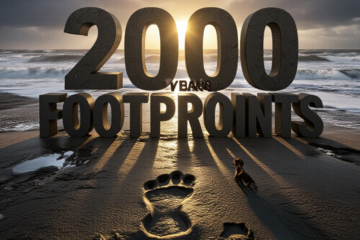A 17-year-old boy in Scotland has been sentenced to 10 years in custody for planning a deadly terror attack on a mosque. The teenager, inspired by far-right figures like Adolf Hitler, was caught outside the Inverclyde Muslim Centre in Greenock with weapons and plans to set the building on fire.
Arrest and Discovery of the Plot
Police arrested the boy in January 2025 while he tried to enter the mosque. He carried a military-style rucksack packed with dangerous items.
Officers found a German-made Glock-type air pistol inside the bag. They also discovered ammunition, ball bearings, gas cartridges, and aerosol cans meant for starting a fire.
The teen had mapped out the mosque’s interior on his phone. This showed he planned to trap and kill people inside.
Investigators searched his home and uncovered more evidence. Items included Hitler’s book “Mein Kampf,” knives, masks, and guides for making explosives.
He had a list of inspirations on his devices. Names like Hitler, Benito Mussolini, and Norwegian killer Anders Behring Breivik topped it.

Guilty Plea and Court Details
The boy pleaded guilty to two terrorism charges at the High Court in Glasgow. This happened after his arrest earlier in the year.
Prosecutors described his plan as a bid for mass murder. He aimed to burn the mosque with worshippers trapped inside.
Judge Lord Arthurson called the plot a diabolical atrocity during sentencing. He noted the teen’s intent to cause massive harm.
The sentence includes time in youth custody first. Then, he moves to an adult prison.
After release, he faces eight years of strict supervision. This aims to prevent future risks.
Radicalization and Background
The teenager started down this path at age 13 through social media. Online content fueled his far-right views over years.
He befriended the mosque’s imam to scout the building. This helped him draw detailed maps for the attack.
Experts say such cases highlight online radicalization dangers. Young people can fall into extremist echo chambers easily.
Recent UK events show rising far-right threats. For example, anti-immigrant riots in English cities in early 2025 drew global attention.
Statistics from counter-terrorism reports are telling:
| Year | Far-Right Referrals to Prevent Program | Total Terrorism Arrests in UK |
|---|---|---|
| 2023 | 1,200 | 250 |
| 2024 | 1,500 | 300 |
| 2025 (so far) | 900 | 180 |
These numbers come from official UK government data. They show a steady increase in far-right cases.
Community Response and Forgiveness
The local Muslim community reacted with shock but also compassion. Mosque chairman Mohammed Akhtar expressed forgiveness toward the teen.
He said the boy and his family deserve sympathy in tough times. Akhtar stressed understanding to build better ties.
Police praised their quick action in stopping the plot. Community leaders called for more education against hate.
This case echoes other youth extremism incidents. In 2024, a similar plot in England led to a 15-year sentence for a teen.
Broader Implications for Society
Experts warn about the spread of online hate. Social media platforms face pressure to curb extremist content.
Schools and parents play key roles in spotting early signs. Programs like the UK’s Prevent strategy aim to intervene.
The sentence sends a strong message against terrorism. It shows courts treat youth offenders seriously when public safety is at risk.
Families affected by similar plots often push for mental health support. This teen’s background included time in state care from age 12.
Key factors in youth radicalization include:
- Exposure to violent online groups
- Lack of positive role models
- Social isolation during teen years
- Easy access to extremist materials
Addressing these can help prevent future cases.
What do you think about this case? Share your thoughts in the comments and spread the word to raise awareness about online radicalization.


















